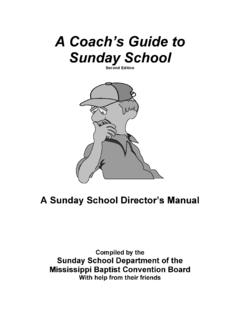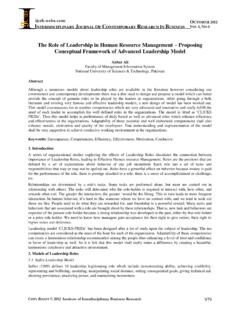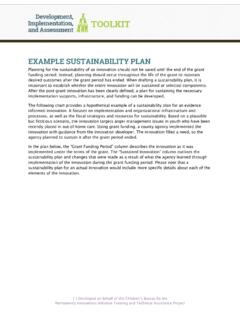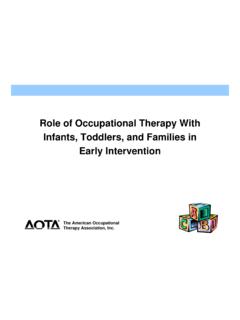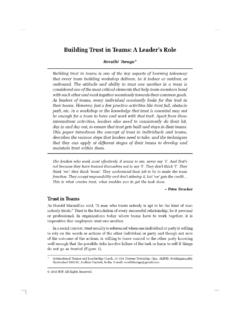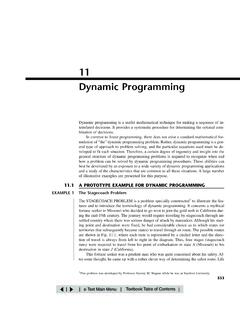Transcription of INTERVIEW QUESTIONS FOR HIRING NEW COACHES
1 INTERVIEW QUESTIONS FOR HIRING NEW COACHES 1. What does the term coaching mean to you? Listen for: Collaboration. Partnership. Learning together. Focus on working with teachers as clients. Enhancing teacher capacity. Job-embedded professional development. Ultimate goal is greater student success. Emphasis on building strengths rather than fixing weak teachers. Coaching is beneficial for all educators. Be cautious if you hear: The expert. I want to get teachers Emphasis on working with students ( COACHES clients are teachers).
2 Emphasis on planning lessons w/ teachers as the focus of coaching. Judgmental tone in talking about teachers struggles. 2. When you think about your typical day as a coach , what kinds of tasks would you be doing? Listen for: Working with teachers. Coaching conversations. Collaboration with professional learning teams. Demonstration lessons. Be cautious if you hear: Working with students instead of teachers. Attention to pre-planned professional development workshops and topics; although COACHES likely do some of this, coaching is really about job-embedded PD that is responsive to teachers needs/interests and their classroom challenges.
3 Emphasis on observation in classrooms as the foundation of coaching. Emphasis on things that don t necessarily lead to increased teacher effectiveness/student learning, such as planning special events. 3. What are the qualities of an effective coaching conversation? Listen for: coach listens before speaking. Conversation starts where teacher is, not where coach wants teacher to be. QUESTIONS are open and honest coach does not know the answer and wants to hear teacher s answer. Problem finding and problem solving. Data are used to support claims, understand problems/challenges, plan instructional strategies, and determine effectiveness of changes made.
4 coach and teacher have adequate time to meet. Be cautious if you hear: Assumption that coach must observe in the classroom in order for a coaching conversation to take place. Perception that coach asks QUESTIONS to get the teacher to see what the coach sees and/or make changes that the coach has already decided are best. Conversation begins with data. Data are not mentioned as part of the conversation. 4. If you are successful as a coach in this school, how would I be able to tell that at the end of your first year? Listen for: Teachers making decisions informed by data.
5 Teachers articulating why they made particular instructional decisions. Greater collaboration among teachers. coach in partnership with all teachers (or with all teachers in the identified pool, if the school is large). Be cautious if you hear: Test scores increased. (Coaching is not likely to have that effect in one year.) Emphasis on fixing poor teachers. 5. How do you see yourself working with professional learning teams? Listen for: Possible roles for the coach : facilitator, member, occasional contributor. Partnership. Job-embedded.
6 Problem finding and problem solving. Helping teams work with differences among themselves. Purpose of teams is enhanced decision making, inquiry, learning to help our students learn. Be cautious if you hear: coach is always in charge of teams. Emphasis on sharing or lesson planning as the only activities for learning teams. Candidate feels overwhelmed at the prospect of working with teams that do not always agree. 6. As a coach , how would you develop trust with teachers? Listen for: Listening. Confidentiality. Providing feedback in the form of paraphrasing to indicate understanding of teacher s perspective.
7 No judgment. Body language. Separating coaching from supervising. Be cautious if you hear: coach will show all that s/he knows and can do. coach will emphasize his/her years experience. coach will be passive and wait for teachers to approach. 7. What makes for a successful demonstration lesson? Listen for: Demonstration lesson grows out of coaching conversation. Demonstration lesson addresses goal/need of teacher. Teacher is interested and engaged during the demonstration. The lesson is in synch with the curricular goals and standards for that class.
8 Teacher and coach discuss the lesson in advance. A debriefing conversation takes place soon after the demonstration. The debriefing conversation discusses not only what was done but also why it was done. Be cautious if you hear: No engagement by teacher. No pre-planning or follow-up discussions with teacher. Showy lessons rather than lessons that are planned with regard to where students are and where they might go. 8. What is the role of data in the work of a coach ? Listen for: Data does not drive the work; it is an essential tool. Good QUESTIONS in the coaching conversation elicit data.
9 Skilled COACHES ask QUESTIONS to help teachers analyze and apply data in decision making. Teachers and COACHES together gather a broad range of data. Data are useful in making instructional decisions and in determining whether instructional decisions were effective. Be cautious if you hear: The coach collects all the data. The coach tells the teacher what the data say. The coach relies only on standardized tests or state-mandated tests as sources of data. The coach believes that data start the coaching process. (They are tools, not the goal or focus.)
10 9. How do you perceive the relationship of a coach with the school principal? Listen for: coach meets regularly with principal. coach and principal discuss overall direction of curriculum, instruction, assessments. coach and principal do not share confidential information about teachers. coach does not contribute to principal s understanding of individual teachers in a way that would affect the principal s evaluation of those teachers. coach discusses his/her professional goals with principal. coach serves as resource to principal in principal s role as learning leader.
